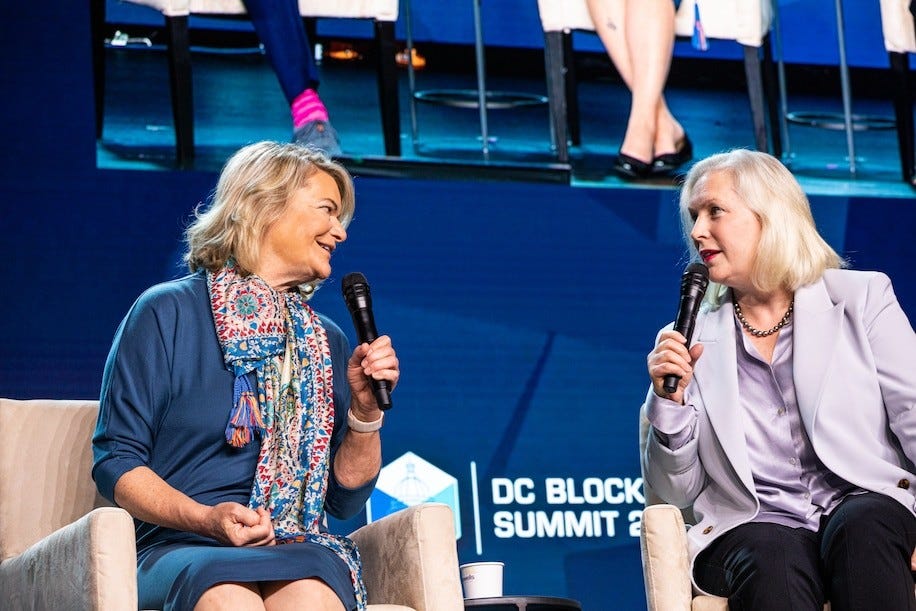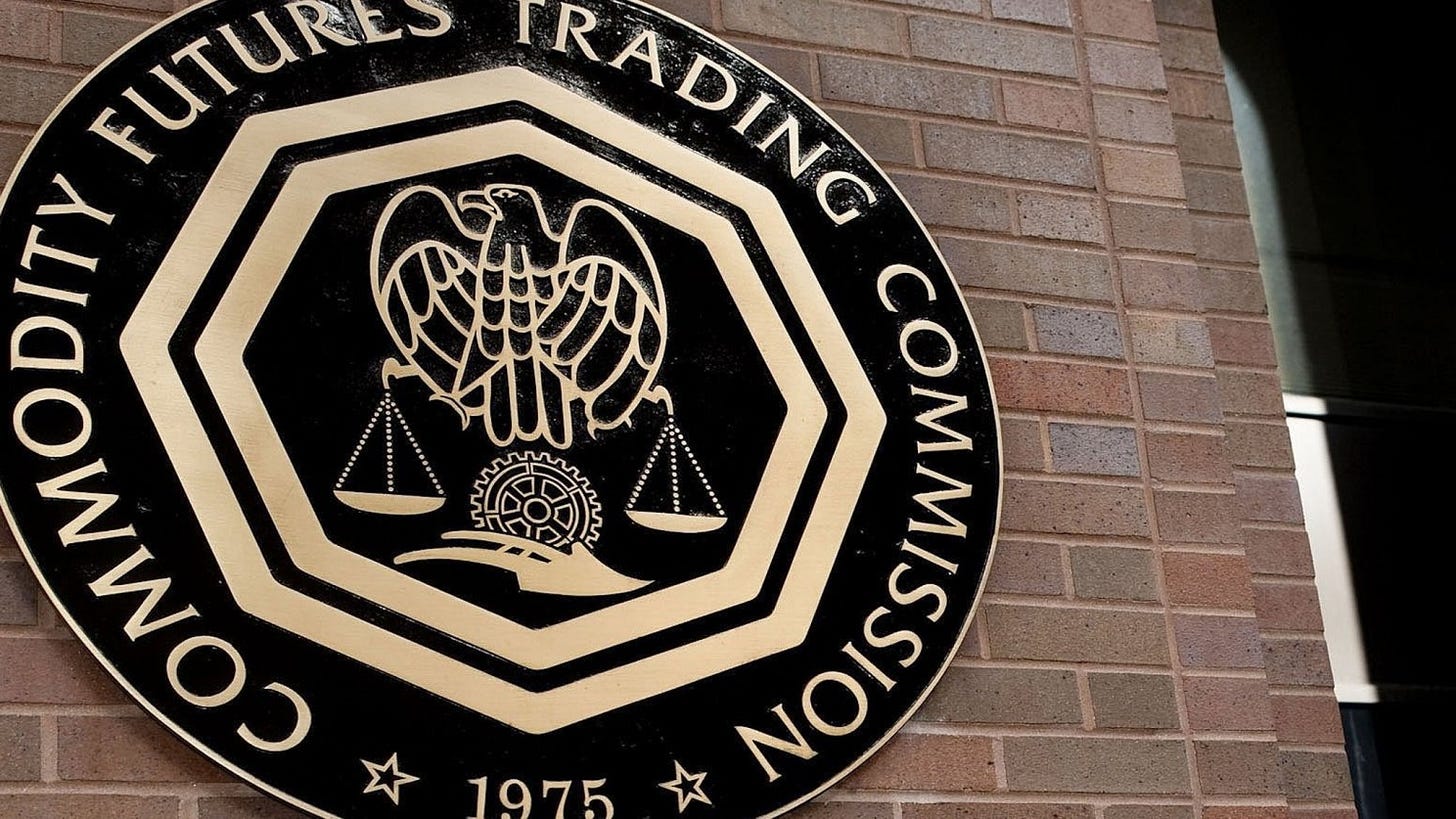Wait, Did Washington Just Do Something Right?!?
Cryptocurrency is an amazing leap forward in the history of money, like the jumps from bartering to commodity money to banknotes. This transition to crypto will be greatly aided by the Responsible Financial Innovation Act. As a former member of the New Hampshire Governor’s Commission on Cryptocurrencies and Digital Assets - and a current candidate for the US Senate – I think that this legislation is a key inflection point in the future of cryptocurrencies.
Some very positive developments are forthcoming. To begin, the bill by Senator Cynthia Lummis, a Republican rancher from Wyoming, and Senator Kirsten Gillibrand, a Democrat and lawyer from New York, demonstrates bipartisan acknowledgement that cryptocurrencies and digital assets are here to stay, are worth supporting, and are a critical innovation that America needs to support.
More importantly, the bill deftly balances the inevitable tradeoff between the desire to promote innovation and creativity while also protecting consumers. This is no trivial accomplishment given the need for responsible taxation, appropriate oversight, and the urgent need for regulatory certainty.
Yet let’s be honest, one of the main reasons that cryptocurrencies have been so successful over the past 5 years or so is that they’ve de facto operated free and clear from government intervention. As the market has grown, however, it has drawn in less sophisticated participants, increasing the industry’s visibility to policymakers as consumer protection concerns grow. It was inevitable that the government would step in to police and regulate the market.
One of the main reasons that cryptocurrencies have been so successful over the past 5 years or so is that they’ve de facto operated free and clear from government intervention.
Current legislation is an awkward mosaic of various state and national legislation that has both confused innovators and compounded uncertainty. The Responsible Financial Innovation Act does a decent job of clarifying how the government will regulate the sector and protect consumers without stifling innovation.
It clearly puts the Commodity Futures Trading Commission (CFTC) in charge of regulating the cryptocurrency spot markets (and corresponding futures). The Securities and Exchange Commission (SEC) will regulate those digital assets which function like securities issued to finance a company’s operations. While this might sound like a minor development, the regulatory clarity will likely unlock pent up investment, spur further innovation, and create jobs. Other noteworthy developments include a deference to state regulations on digital asset mining and increased oversight of stablecoins (FDIC insured or 100% backed by hard assets).
When I announced my campaign for the US Senate, I noted that I am different than most candidates: I am a businessman, not a politician. I’ve had decades of experience in corporate boardrooms and working with entrepreneurs. I have a PhD in innovation from MIT. And the one thing I can say for certain is that America needs to enable and support entrepreneurship to remain an economic superpower. Government must get out of the way or create an environment in which businesses can unleash the power of innovation to create the industries of the future, here in America.
I always find it frustrating when politicians don’t give a straight answer, hedge their answers, or hem and haw, so let me be absolutely crystal clear: if I was in the US Senate, I would vote for this bill. In fact, I would also sponsor legislation that further strengthened the crypto market, facilitated the use of cryptocurrencies, and set the conditions that empowered entrepreneurs and innovators to create financial innovations that we have not yet dreamed up.
As the crypto community grows and matures, it must learn how to defend and promote itself in the halls of power. All industries and sectors have their champions in Congress: Agriculture has the support of the Plains; manufacturing interests are defended and promoted by the Rust Belt; and industries ranging from technology to shipping and oil and gas to entertainment have figured out how to protect and advance their interests. The crypto and digital assets industry must do the same.
If I am elected, I would be a strong advocate for cryptocurrencies, as I believe that this is good for my home state of New Hampshire, as well as for our national economy.
Vikram Mansharamani is a Candidate for US Senate and was profiled by Worth as one of the 100 most powerful people in global finance. To be part of this effort to expand and strengthen the crypto industry, please visit www.vikram4nh.com to learn more and of course, if you'd like to support me, I accept bitcoin as well as US dollars.







